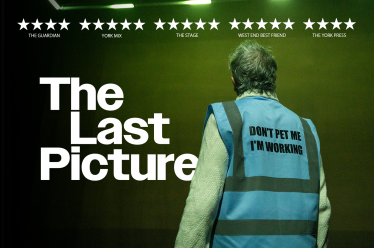

Unicorns, Almost
–Unicorns, Almost tells the life story of Keith Douglas from his early childhood to his fighting in the Western desert as a tank commander; his accelerated education as a poet to his early death three days after the D-Day landings in Normandy at age 24.
Marking the outbreak of WWII for its 80th anniversary, this is the story of one man’s Faustian pact with a war which would both gift his penetrating poetic voice, and then take it away.
Written by Owen Sheers (Pink Mist), Unicorns, Almost conjures Douglas back into confrontational existence before an audience. Echoing the frequent direct address of his poems, Douglas’s pressure to speak to us is twofold: a desire to remind us of the horrors of war and what it steals from us, and a frustration that despite having seen his poems turned into print, they have remained, for the last 70 years, largely unread.
Supported by Ronnie Scott’s Charitable Foundation
★ ★ ★ ★A poignant portrait of a tormented war poet
★ ★ ★ ★ ★Vigorous and charged
★ ★ ★ ★ ★Captivating
★ ★ ★ ★Breathtaking poetry
★ ★ ★ ★Beautifully written
★ ★ ★ ★Honest, holistic and honed
- Venue
- The Weston Studio
Why the title: Unicorns, Almost?
This phrase is in reference to a line from Douglas' 1943 poem Aristocrats: “I think I am becoming a God”:
The noble horse with courage in his eye
clean in the bone, looks up at a shellburst:
away fly the images of the shires
but he puts the pipe back in his mouth.
Peter was unfortunately killed by an 88;
it took his leg away, he died in the ambulance.
I saw him crawling on the sand, he said
It’s most unfair, they’ve shot my foot off.
How can I live among this gentle
obsolescent breed of heroes, and not weep?
Unicorns, almost,
for they are falling into two legends
in which their stupidity and chivalry
are celebrated. Each, fool and hero, will be an immortal.
The plains were their cricket pitch
and in the mountains the tremendous drop fences
brought down some of the runners. Here then
under the stones and earth they dispose themselves,
I think with their famous unconcern.
It is not gunfire I hear, but a hunting horn.
Keith Douglas, Tunisia, 1943.






